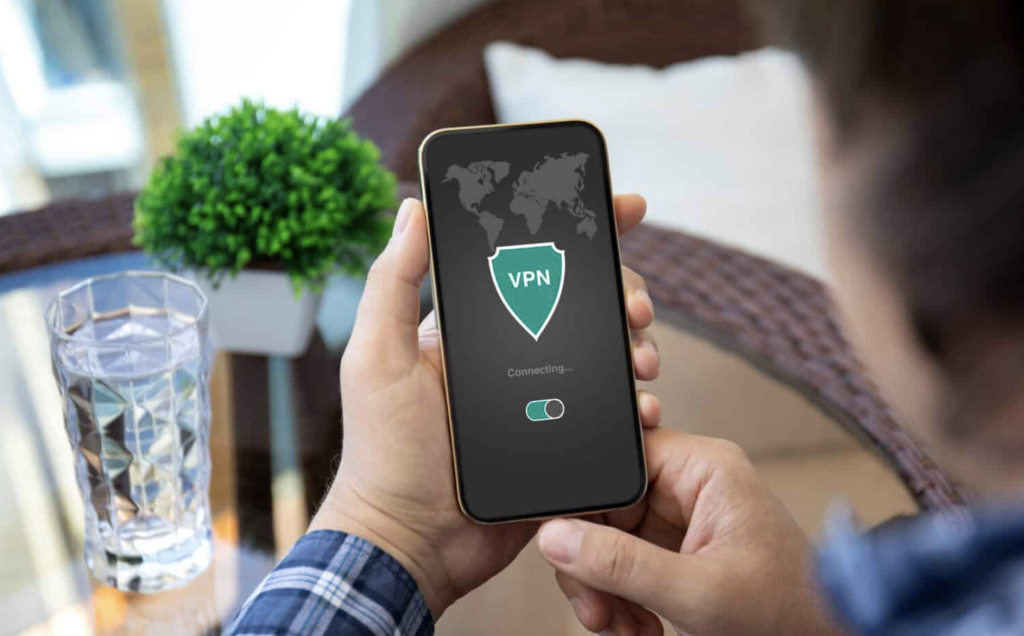When you surf the Internet, your data is associated with your Internet Protocol or IP address. This allows governments, Internet Service Providers (ISPs), and cybercriminals to snoop on your activity.
VPNs prevent encroachments on privacy and allow users to keep their browsing history, device information, and geographic location private. They also help employees working remotely connect to corporate resources and bypass geographically blocked content.
Decryption
When you connect to the Internet, all your online activities are associated with your device’s IP address. Cybercriminals looking to steal your data or exploit your devices for malware can easily access this information. VPNs stop them from getting that information by routing your device’s connection through the VPN’s private server. The data is encrypted while on the VPN server and unreadable until it reaches its final destination.
It’s like using a post office box to receive mail instead of your home address. This is essential if you’re worried about identity theft, which can occur when cybercriminals intercept your data.
A VPN can further protect your privacy by hiding your Internet Protocol (IP) address and geographical location while you use the Internet. This makes it harder for websites and web servers to track your activity, often done to deliver targeted advertising or show you more relevant content.
Companies often employ VPNs to help remote workers access secure business networks. They may also bypass Internet censorship in countries where journalists and political dissidents must access the Internet safely to speak their minds. They can even access blocked sites in other countries, such as popular streaming services and video game platforms.
Encryption
Encryption is a crucial aspect of how VPNs work. When you connect to the Internet with a VPN, your data travels through a tunnel from your device to a private server. This tunnel is encrypted; only the VPN server can read the data. This prevents cybercriminals and other snoopers from intercepting and exploiting your information as it travels over the Internet.
Depending on your type of VPN, it may have additional features that enhance your security and privacy. For example, a VPN with a built-in security certificate can authenticate users and prevent spoofing or man-in-the-middle attacks. It can also use message authentication codes to detect changes to transmitted data.
A VPN can also mask your IP address, making it impossible for anyone to link your browsing habits to your real-world identity. This helps you avoid being targeted by identity thieves, who can use your online activity to steal your banking, financial, employment, or identifying data.
Many businesses find VPNs useful because they enable remote workers to access company systems and data without risking the security of their devices. In addition, VPNs can help companies bypass geographic restrictions and connect offices in different locations. They can also help them save money by eliminating the need for costly leased lines or manual firewall exceptions for remote users.
Key Management
In addition to encryption and decryption, VPNs use critical management systems to control access to the VPN tunnel. This helps prevent unauthorized users from spying on data or using tunnels.
Without a VPN, your data is visible to anyone accessing your home or public WiFi network. VPNs create an encrypted tunnel that blocks your ISP, hackers, government agencies, and anyone else from seeing your data as you navigate the web.
This tunnel effect is what makes VPNs so useful for remote workers. It allows employees to connect to the corporate network and access company resources as if they were in the office. It also protects sensitive company information from hackers in coffee shops or hotel rooms.
Most VPNs use a symmetric encryption system called AES, which uses a pair of keys to scramble data into an unreadable jumble. These keys are shared between a VPN server and the user. The only way the interceptor could see your data would be to have the decryption key.
Some VPNs use RSA, which is more complicated than AES but less vulnerable to brute-force attacks. It’s not used as an encryption method because it’s integrated into TLS, the security protocol that powers https sites. Some VPNs also use TLS for authentication and to safeguard the transmission of AES keys.
Shared Keys
When a VPN creates its private tunnel to the Internet, it hides your device’s IP address – the string of numbers assigned by your ISP to identify devices and network connections – and encrypts your data. This means that even if your data is intercepted, it will only be readable to the destination device or server.
The VPN tunnel connects your device to a network of private servers with multiple locations worldwide. As a result, your device will appear to be connecting from one of these geographic regions, making it difficult for attackers or others hoping to track your activity to determine your actual location.
There are many reasons why VPNs are advantageous. For example, they keep you safe on public WiFi networks and help you avoid price discrimination when purchasing items online, such as flights, technology, or hotels. They also enable you to get access to streaming content or websites that are geo-blocked in your country.

